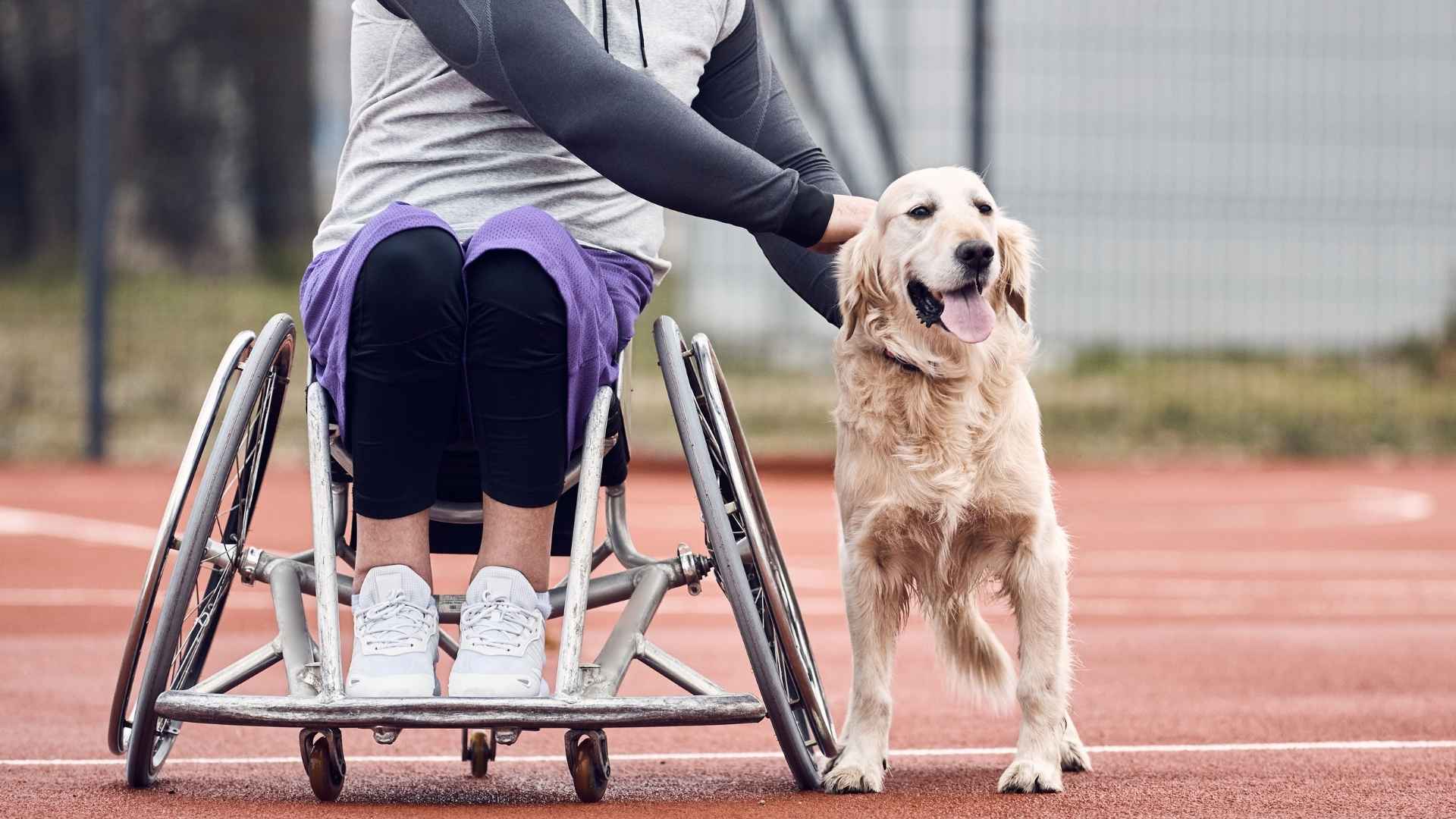Did you know that, according to the BBC, a Labrador retriever named Leo saved his owner’s life by helping in dialing 999 and calling for help?
Dogs are not just pets, they are lifelines for many people with disabilities. These service dogs are trained to provide more than just love, they offer essential daily assistance.
This article delves into the 7 dog breeds for people with physical disabilities. These dogs rewrite the meaning of companionship with their selfless service.
Dog Breeds for Individuals with Physical Disabilities
For individuals with disabilities, certain dog breeds provide more than just unconditional love. They serve in assisting tasks and making everyday life easier. These breeds are making these miracles of saving lives possible.
Discover the top 7 dog breeds that offer unwavering support and companionship to individuals with disabilities. Learn how these loyal canines transform lives daily.
1. German Shepherd
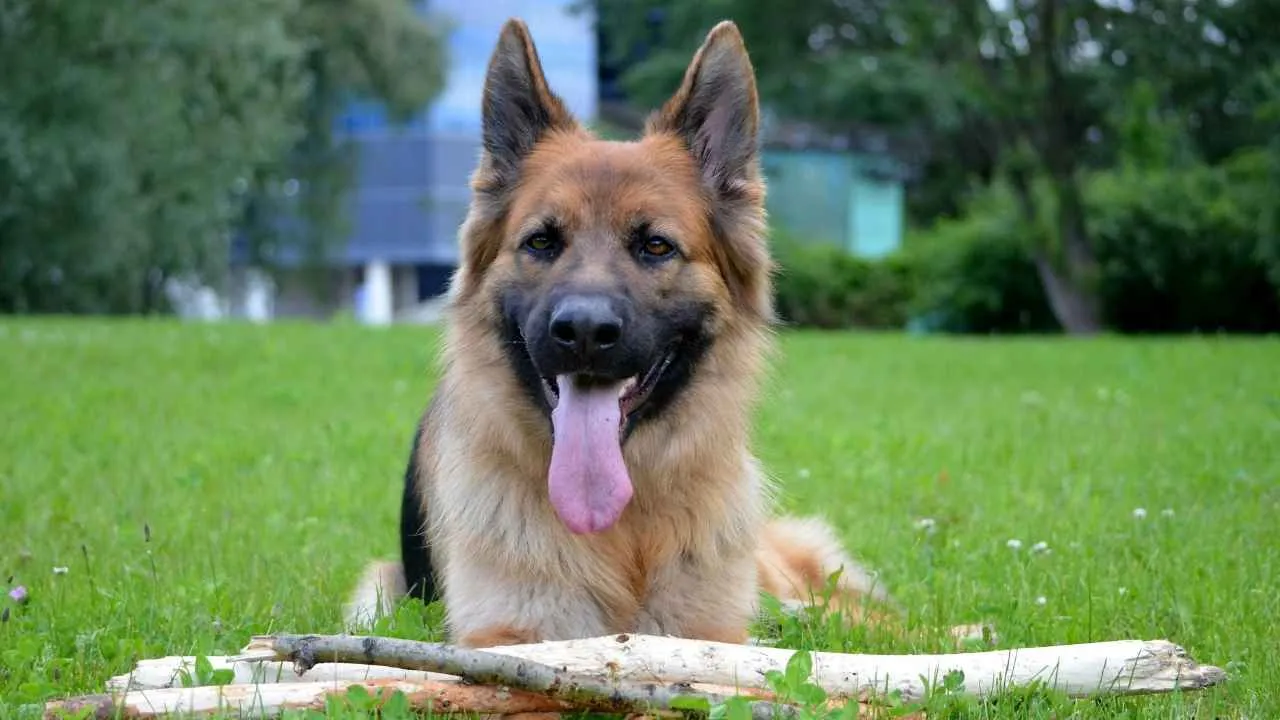
German Shepherds are known for their versatility, often serving in dynamic roles. From police work to mobility assistance for individuals with physical disabilities, these dogs are trained to manage it all.
What Makes Them Ideal:
Trainability: Highly intelligent and eager to learn, German Shepherds can be trained to perform complex tasks, like opening doors, retrieving items, and even operating switches.
Strength and Stability: Their robust build makes them excellent for providing balance support and aiding in mobility.
They form strong bonds with their people with disabilities, ensuring consistent support and companionship.
These dogs are deeply loyal and can sense their owners’ emotional states. Their calming presence offers comfort during stress or anxiety. They are excellent support animals with proper socialization.
Moreover, these support dogs require daily physical and mental stimulation to keep them healthy so they can help people.
2. Golden Retriever

Golden Retrievers have a naturally soft mouth. It allows them to carry items without damaging them, ideal for retrieving dropped objects.
What Makes Them Ideal:
Gentle Nature: Their calm demeanor makes them excellent for individuals requiring emotional support.
Task Assistance: They can be trained to perform various tasks, from fetching items to assisting with mobility.
Adaptability: Their friendly disposition allows them to navigate spaces with ease, reducing stress for their owners.
They are naturally affectionate and empathetic, making them one of the best therapy dogs. Their gentle nature soothes those experiences of emotional imbalance.
They excel in comforting people with depression, PTSD, or trauma, simply by being present. However, regular grooming is necessary for golden retrievers due to their thick coats.
3. Labrador Retriever
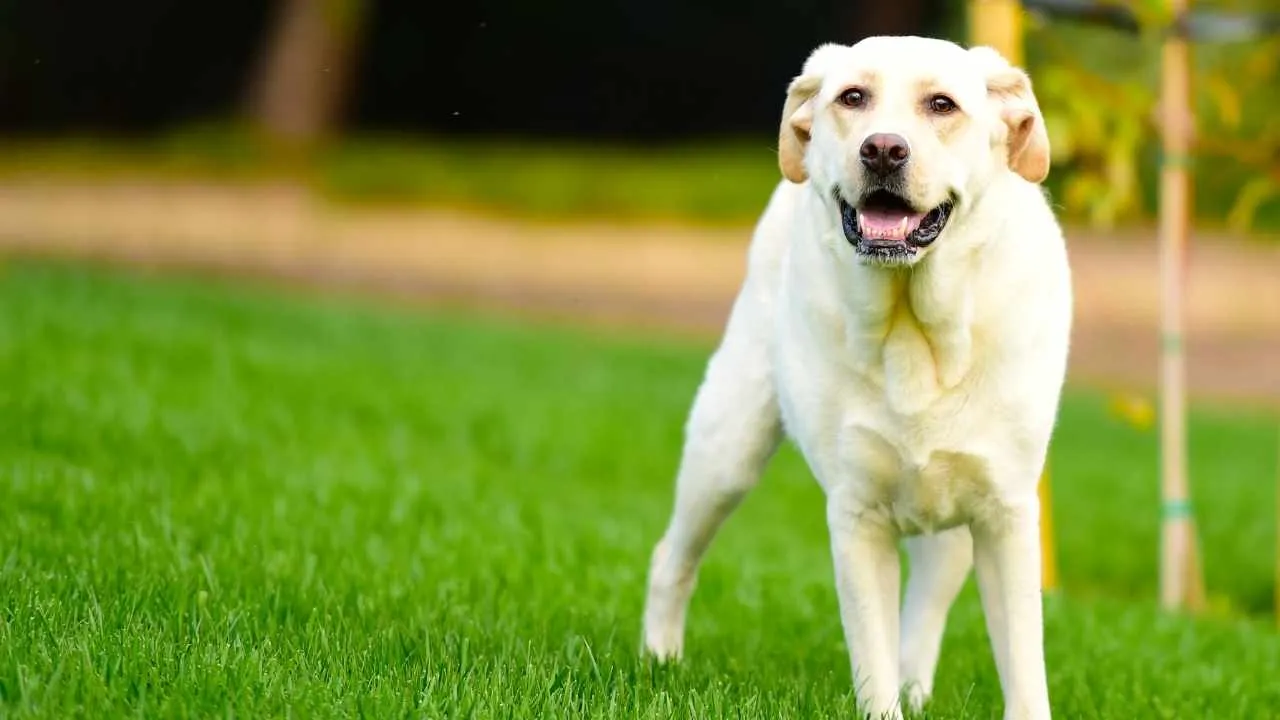
Labradors are among the most popular service dogs, known for their reliability and adaptability.
What Makes Them Ideal:
Versatility: They excel in various roles, from guiding the visually impaired to assisting with mobility tasks.
Friendly Disposition: Their social nature makes them suitable for individuals who require assistance in public settings.
Physical Capability: Their strength allows them to support individuals in standing or walking.
Labs are the top choice as service dogs. They are warm, friendly, and quickly tune to their humans’ emotions. They are always ready to spend time cuddling.
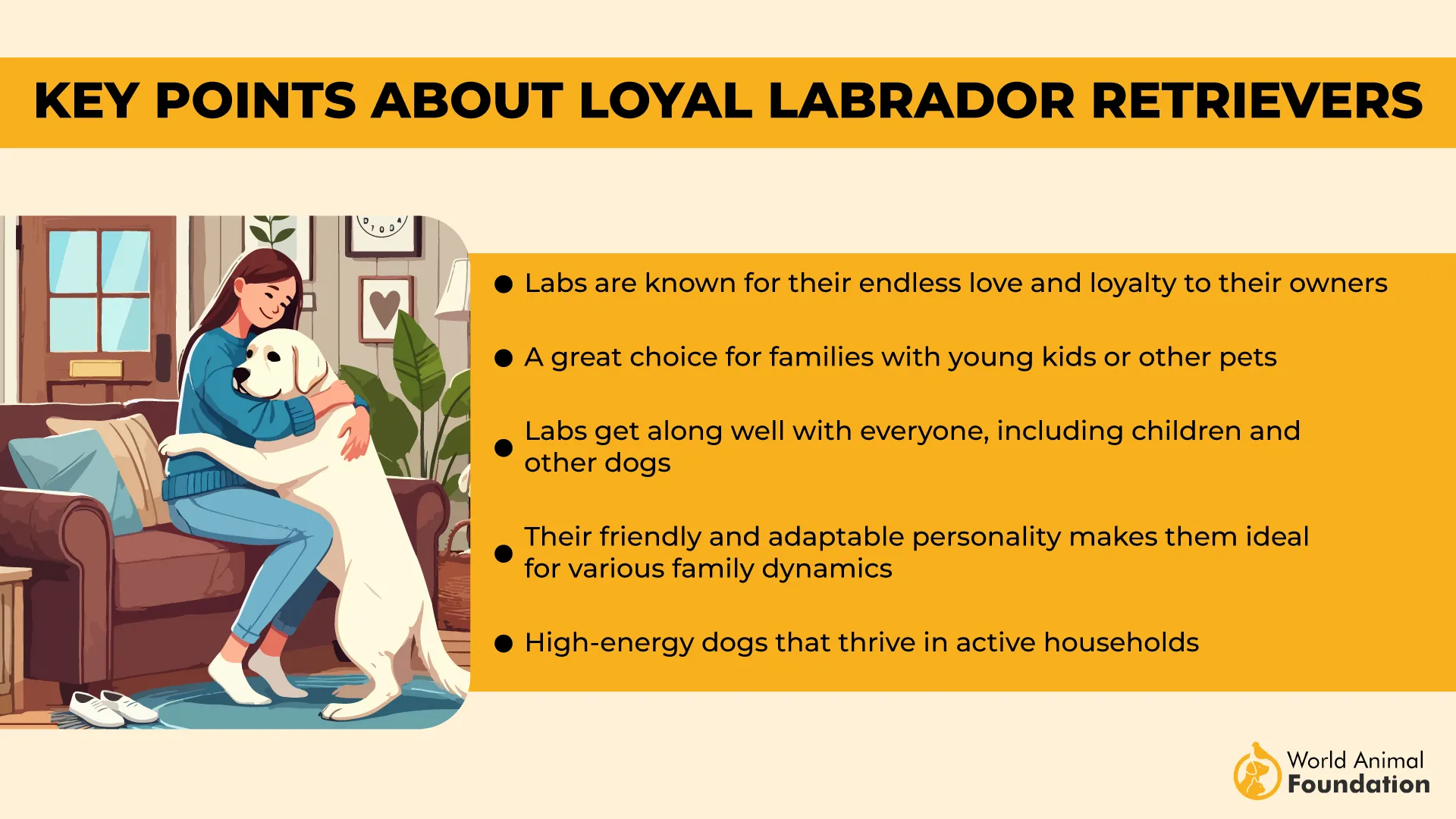
They thrive on companionship and may not do well if left alone for extended periods. However, in comparing golden retrievers and labradors, labs require less grooming due to their shorter coats.
4. Great Dane
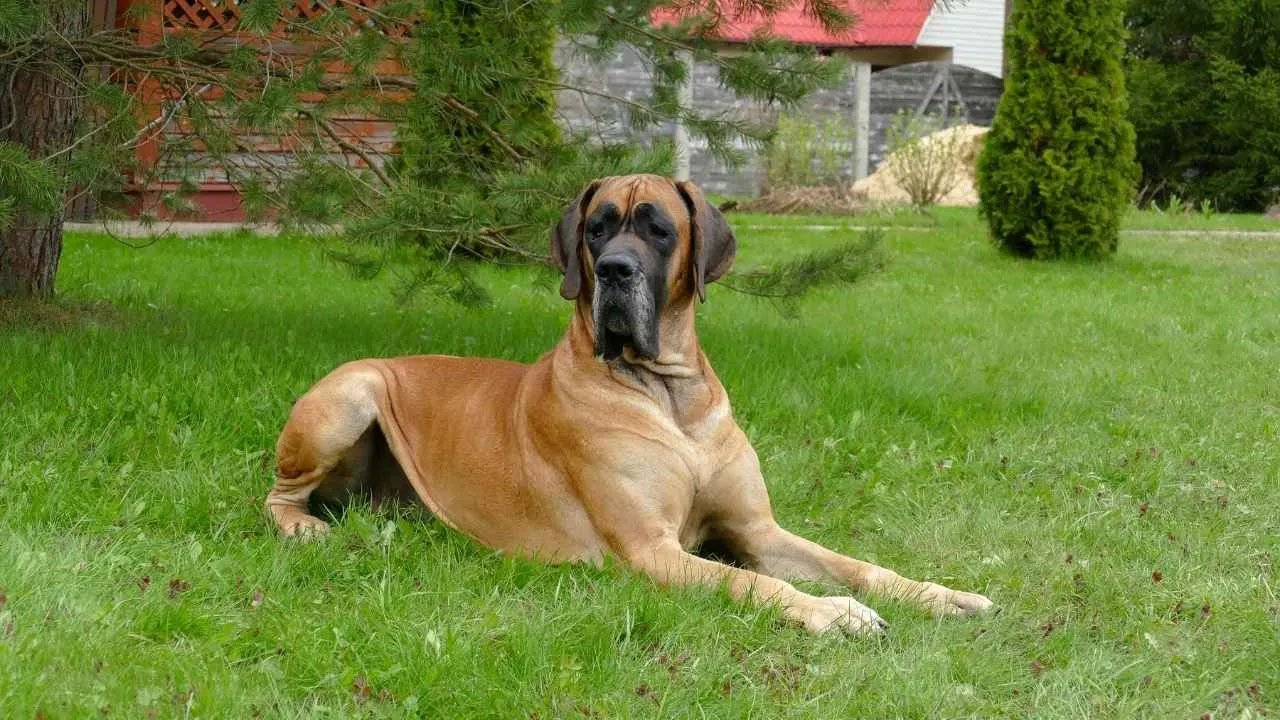
Despite their large size, Great Danes are known as gentle giants, according to PetMD. They often form deep bonds with their handlers.
What Makes Them Ideal:
Height Advantage: Their tall stature allows them to assist individuals in reaching objects or providing balance support.
Calm Temperament: Their composed and calm nature makes them suitable for individuals requiring steady companionship.
Strength: They can be trained to assist with mobility tasks, such as pulling wheelchairs or providing support while walking.
Their calm presence has a grounding effect, making them excellent emotional support dogs for those with anxiety or panic disorders. Due to their size, they require ample space and may not be suitable for apartment living.
5. Pomeranian

Though they are small dogs, Pomeranians have been trained as alert dogs. They assist individuals with hearing impairments or medical conditions.
What Makes Them Ideal:
Portability: Their compact size makes them easy to train and carry. Moreover, they can adjust to apartments or small spaces.
Alertness: They can be trained to alert handlers to specific sounds or medical emergencies.
Companionship: Their affectionate nature provides emotional support, especially beneficial for individuals with limited mobility.
Pomeranians may be tiny, but their emotional impact is massive. They thrive on closeness and love snuggling. Their cheerful personality can lighten moods, especially for individuals with physical issues.
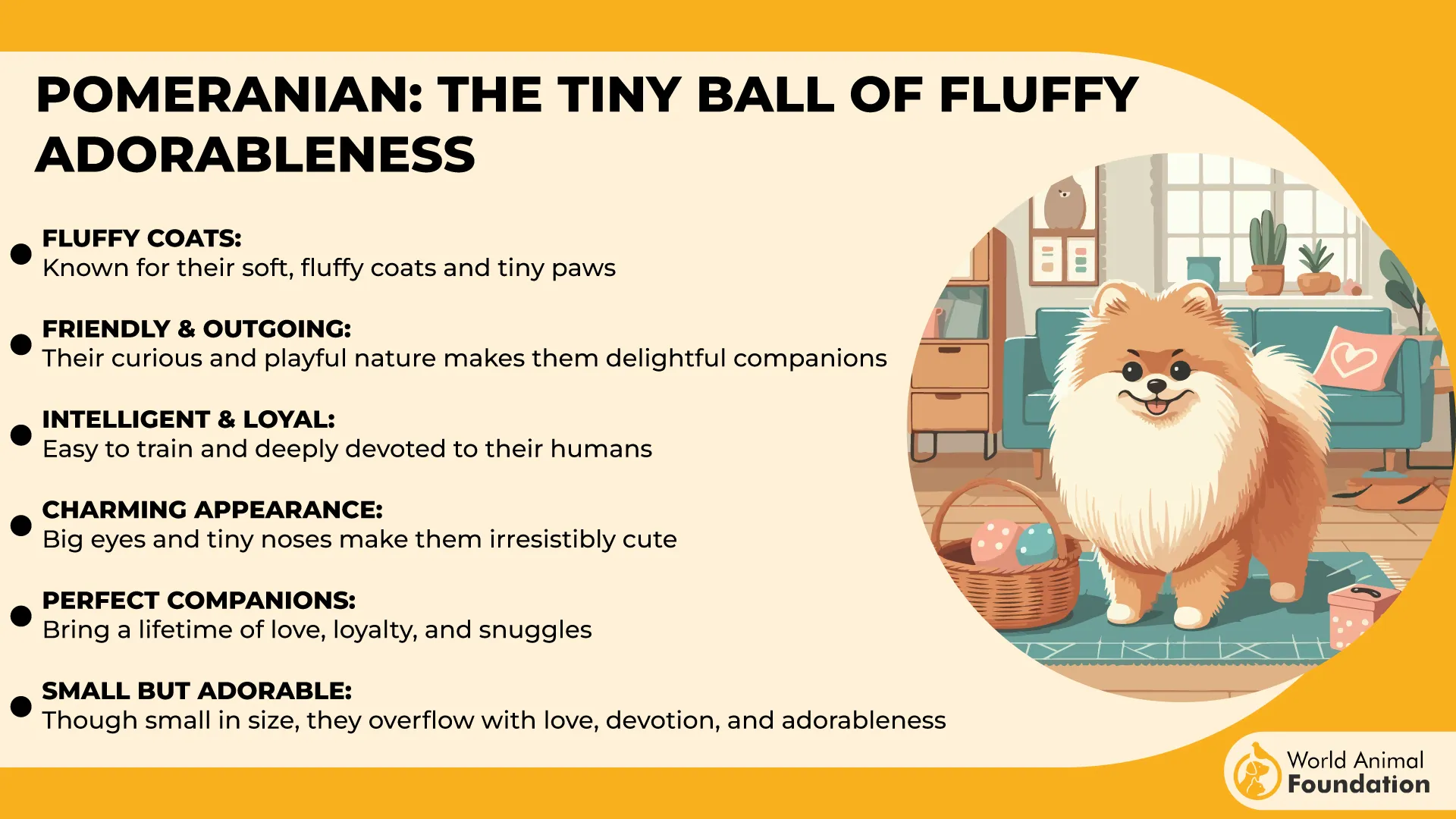
While not traditional therapy dogs, their cuteness is therapeutic in its own way. However, regular grooming is essential to maintain their fluffy coats.
6. Boxer
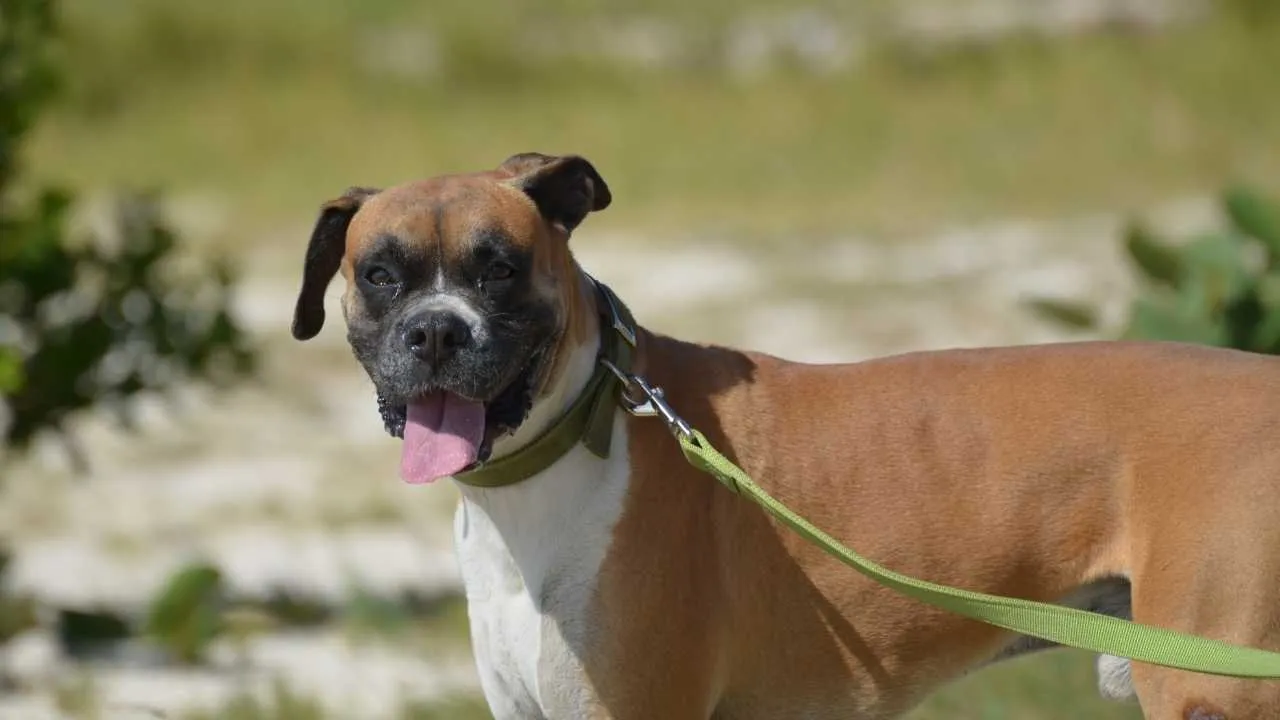
According to Pawlicy, Boxers have a history as service dogs, especially for blind people. They are known for their strength and protective instincts.
What Makes Them Ideal:
Strength: Their muscular build allows them to assist with tasks requiring physical support.
Protective Nature: They are naturally vigilant, providing an added sense of security for their handlers.
Energy: Their playful demeanor can uplift spirits, offering both physical assistance and emotional support.
Boxers are deeply affectionate and protective, always eager to stay close to their people. Their clownish, upbeat energy helps lighten heavy emotions and combat loneliness.
While more active than some service dogs, their ability to bond strongly and stay attuned to emotional shifts makes them excellent emotional support companions.
7. Poodle
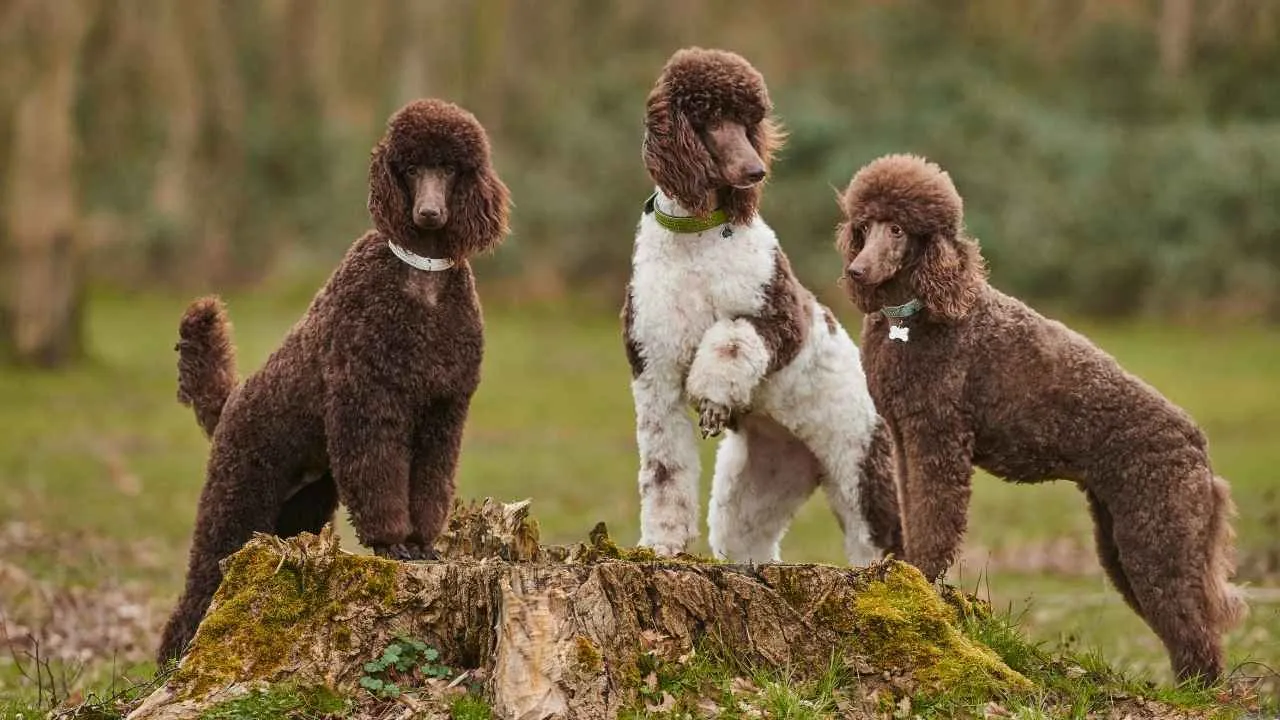
Standard Poodles are among the most intelligent dog breeds, according to the AKC. They are highly trainable to serve as assistance dogs.
What Makes Them Ideal:
Hypoallergenic coat: Their unique coat is suitable for people with allergies.
Trainability: They can easily be trained to learn complex tasks, from retrieving items to operating switches.
Adaptability: They can be trained for specific needs, whether it is mobility assistance or alerting to medical emergencies.
Poodles are smart, affectionate, and intuitive, key traits for therapy work. They adapt well to different emotional environments and are often used in therapy for children and adults alike.
These hypoallergenic dogs are ideal for people with asthma or allergies. Whether offering a cuddle or calm companionship, they are incredible in everything.
A Quick Comparison of the 7 Dogs for People With Disabilities
|
Dog breeds |
Size |
Best for |
Therapy dog suitability |
|
German Shepherd |
Large |
Balance and Mobility, Guidance, PTSD support |
Moderate |
|
Golden Retriever |
Large |
Emotional support, mobility, and retrieving objects |
High |
|
Labrador Retriever |
Large |
All-round service, emotional support, independence |
High |
|
Great Dane |
Very Large |
Stability, balance, protection, and security |
Moderate |
|
Pomeranian |
Toy-small |
Emotional support, alertness, and assistance |
Low to Moderate |
|
Boxer |
Medium – large |
Emotional and Physical assistance |
Moderate |
|
Poodle |
Medium- large |
Versatile Support, emotional bonding, and allergy-friendly |
High |
Conclusion
Choosing the right dog for individuals with physical disabilities goes beyond strength and trainability. It is about emotional support, companionship, and intuitive care.
Whether it is the lovely Golden Retriever or the steady Great Dane, each breed offers something unique when it comes to working as a service dog. Dogs don’t just assist, they transform lives.


